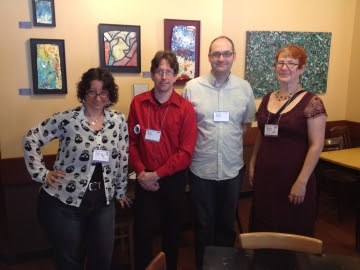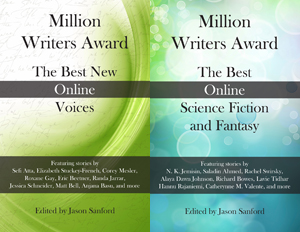interviewed by Carl Slaughter
 We asked Frank a long time ago if he would be so kind answer a few questions for us. He said he would as soon as he found a little time. Months went by with excuses like I have to wash my hair, and I need to clean my fingernails, or I got to pick up the dog poop in my yard today, on why he couldn’t give us a few minutes. So we popped in for a visit where we threw a burlap bag over his head, hogtied him, threw him in the back of a trunk, and took him to an undisclosed location to a dark room with hot lights glaring in his face.
We asked Frank a long time ago if he would be so kind answer a few questions for us. He said he would as soon as he found a little time. Months went by with excuses like I have to wash my hair, and I need to clean my fingernails, or I got to pick up the dog poop in my yard today, on why he couldn’t give us a few minutes. So we popped in for a visit where we threw a burlap bag over his head, hogtied him, threw him in the back of a trunk, and took him to an undisclosed location to a dark room with hot lights glaring in his face.
Thank you for joining us today.
Pleasure to be here. Could you cut the plastic zip-ties around my wrists, please? I can’t feel my fingers.
When I first started reading your stories several years ago, your material was barely marketable. You’ve had 2 stories in Daily Science Fiction and you climbed to the top of the Writers of the Future contest. What happened in the interim?
Life. A new job, growing kids, and other responsibilities (car and house maintenance) that take precedence. Writing is but a hobby for me , an activity to help sharpen my dulling mind and keep me preoccupied in a job that keeps me away from home for long stretches of time.
On the writing front: not much. I’ve taken on new responsibilities that are tied to my ‘hobby’ but grant me less time to create new works of fiction. In other words , I am submitting less than I have in the past but I’m not quite out of the game.
You were slush editor for Unidentified Funny Objects anthology and the On the Premises humor contest. One of your Daily Science Fiction stories was humor and “Intergalactic Nuisance” was borderline riotous. Why humor?
Because I like it. There is no shortage of great works of speculative fiction but not a lot of it is humorous. It’s difficult to pull off and opinions on what is, and isn’t, funny, vary. I need not go any further than my slush reading duties at UFO to prove that. Alex Shvartsman (UFO editor) has a half-dozen slush readers for his annual project. Alex has told me that he has yet to receive a submission that received a unanimous yes from all his helpers.
Rom Zom Com. I’m guessing that stands for romance, zombie, and comedy. Is that like Shawn of the Dead and Warm Bodies?
Couldn’t tell you, I never saw either movie before. I just saw their guidelines. They were looking for humorous zombie tales and I just happened to have one in my files I wrote for an in-house contest for one of my writer groups. I submitted it and they bought it.
Why is it significant that other review zines don’t cover Daily Science Fiction? Or to put it reversely, why is it significant that Diabolical Plots covers Daily Science Fiction and is the only review zine that does?
I don’t know why other review zines ignore DSF. I was reviewing for Tangent Online when the publication first came to life. I recommended that we at least try to review it but the editor wanted nothing to do with it. As I recall, he said they had too much material to review and that their business model likely doomed them to obscurity and predicted it would close soon. I disagreed and felt the publication deserved a measure of recognition for their herculean effort. So after to being rebuffed by the Tangent Online editor, repeatedly, I asked David Steffen at Diabolical Plots if he’d be willing to host my reviews.
The reason why it is significant that Daily Science Fiction is covered (I am grateful to David for posting the reviews all these years) is that the DSF editors and their authors deserve the satisfaction to know that their work has been read. It’s a good publication, outstanding in fact. The price for subscription is affordable (free). Their distribution is innovative (daily email), and the talent is first class. They attract the best speculative writers and publish more first time authors then any professionally rated publication. The editors of DSF deserve more than just a review or two, they deserve an award for all they’ve done for speculative fiction these past few years.
You’ve been reviewing Daily Science Fiction for 4 years. They publish 20 stories a month, so that’s a lot of grunt work, even if 4 out of 5 stories per week are flash. Why stay on this beat for so long?
Commitment, stubbornness, loyalty , take your pick. I did it for so long because I enjoyed reviewing and reading DSF.
Lois Tilton cranks out that kind of volume and more, but she reviews full time. How do you accomplish that feat and hold down a full time non-literary job at the same time?
It is taxing, I confess. Without the help of my colleagues James Hanzelka and Dustin Adams, I would have thrown in the towel long ago. My first review received a positive response from many who read it and from the editors of DSF. Encouraged by the feedback, I vowed to keep at it and decided I would continue to do so as long as my reviews were within six months of current published works. Alas, that mark was crossed this summer (I had a lot going on). My reviews of the publication have ceased (I have one last month I need to finish). I enjoyed doing them very much but they had started to become a chore to maintain, so with much regrets, my next review of DSF will likely be my last.
You’ve been reviewing the Writers of the Future anthology for 6 years. Again, why the longstanding interest in that market?
My first one was written as an analysis of the winning stories. I started reviewing the publication about the same time I started to submit to them. At the time of my first WotF review, Diabolical Plots first came online. I asked David Steffen if he would be willing to post them. He was all over it.
The reviews of the contest are written from the perspective of a long time reader (I’ve been a fan of the anthology since it first debut decades ago), a submitter to the contest, and with the experience I’ve gained as a reviewer over the years. Studying the anthology to write the reviews has helped me to improve my standing in the contest , 2 finalist finishes, a semi-finalist honor, and over dozen Honorable Mentions.
What did you take away from your role with Unidentified Funny Objects?
Two things: Humor is subjective and I’m not as funny as I once believed. It is also the first true slushreading job I’ve ever done. I have sympathy for those who do it on a regular basis and no longer get offended when I receive a rejection now. I also have had this theory confirmed:
a) Not everyone will agree on what is funny and…
b) Everyone can agree on what isn’t funny
We got a lot of submissions where you could feel the writer giggling as they jotted the funny idea in their heads on their computer screens. There was a lot of eye rolling, head shaking, and groaning done as I read the slush. It became clear to me that humor isn’t for everyone.
However, we also had a few I thought were brilliant but not enough of my colleagues shared my opinion. Truthfully, some of the funniest submissions we received (IMO) didn’t make it in. Not everyone’s funny bone responds the same way, I guess.
Same question for the On the Premises contest.
I adore On The Premises. The editors are the slushreaders. They whittle down the submissions to a handful and send them to the judges to read. The prize money, although not pro-paying, is enough to make it alluring. They’ve made it a blind read contest , the authors names are not known to the editors or judges during the contest. I’ve come to regard it as a great place to practice if you like to submit to contest publications like Writers of the Future or Glimmer Train. What helps to make them unique is the editors will (for a fee) critique your story if you fail to make their top ten. I’ve learned a lot about my submissions from their critiques.
I had become such a regular to OTP (as a contestant and guest judge) that they made me a permanent fixture there as a fulltime judge, an honor I haven’t taken lightly.
Same question for Tangent.
It was an experience. My time there was short but I learned a lot from it, both positive and negative.
Why all this slushing and reviewing? Do you have your eye on a full time editing gig?
*snort* not unless I hit the Powerball jackpot, but what a dream. Can you imagine running your own professional paying publication? Got to have the money and time to burn to be able to do that.
Did you gain anything from participation in the Critters workshop? Why did you drop out?
Critters is an excellent place for beginners to start. You learn to critique and absorb real criticism from total strangers , both a prerequisite if you expect to stand a shot as a contributor in the speculative fiction industry. It’s also a great place to find friends who share in the passion of writing science fiction and fantasy. I recommend it to everyone to give it a try.
The reason why I don’t participate anymore is because I moved on and made room for other stuff.
Same question for Hatrack.
Hatrack is a good place for writers to congregate. It’s more personal than Critters and the feedback is almost immediate. Most of the stuff I’ve published came about thanks to a Hatrack writer’s challenge.
Same question for Codex.
Codex is that secret club your friends will tell you about that you can’t get in (you have to had made a professional sale or completed an accredited writers workshop to be eligible to be a member). They have some tough in house contests over there. Joining them is like being the big shot in middle school who learns he’s a nobody the first day of high school. It can be a little intimidating.
Care to share some invaluable, free wisdom with aspiring writers?
Sure. You’ll see this advice sooner or later…
…if you want to make it as a writer, you got to treat writing as if it is your job. Set goals every day , minimum word counts to target or a certain number of pages to complete, even when don’t feel like writing.
The best advice I can give you is to IGNORE that advice. Treat writing as if it’s your job? Jobs suck. The only reason why anyone goes to a job is because someone pays them to show up to do work. So unless you’re earning a living as a writer, you should never treat writing as it is your livelihood (or job).
Hobbies though, hmmm. We love our hobbies. We’ll spend money on a hobby. We’ll take classes, arrange for lessons, and read books so we can get better at them. Hell, most of us have schemed to get out of work so we can spend more time on a hobby. Hobbies are enjoyable things to do.
Writing requires passion. Sure, you can be passionate about your work but you’ll crave diving into a hobby. People love doing a hobby and you have to love writing to be any good at it. Hobbies are easy things to step away from and pick back up later (sometimes you just need a break). You can’t do that with a job. You’ll get fired. The fact is if you set it in your mind that you have to get a minimum amount done every day you’ll come to resent writing. Any job that is that demanding and is one you do for no pay, is an easy job to quit, and you really don’t want to quit anything that you pored that much passion into, do you?
So treat your writing as some do golfing, or bowling, or painting, or crafting. Do it because you want to. Do it because you want to get better at it. Do it because you hope to be good enough to have it become your job one day (it has happened before). To get that good requires patience, a long term commitment, and a ton of passion.
Thank you for your time.
Can I go home now?
 Carl Slaughter is a man of the world. For the last decade, he has traveled the globe as an ESL teacher in 17 countries on 3 continents, collecting souvenir paintings from China, Korea, Thailand, Vietnam, and Egypt, as well as dresses from Egypt, and masks from Kenya, along the way. He spends a ridiculous amount of time and an alarming amount of money in bookstores. He has a large ESL book review website, an exhaustive FAQ about teaching English in China, and a collection of 75 English language newspapers from 15 countries.
Carl Slaughter is a man of the world. For the last decade, he has traveled the globe as an ESL teacher in 17 countries on 3 continents, collecting souvenir paintings from China, Korea, Thailand, Vietnam, and Egypt, as well as dresses from Egypt, and masks from Kenya, along the way. He spends a ridiculous amount of time and an alarming amount of money in bookstores. He has a large ESL book review website, an exhaustive FAQ about teaching English in China, and a collection of 75 English language newspapers from 15 countries.

 Rahul Kanakia
Rahul Kanakia
 Damien Angelica Walters’ work has appeared or is forthcoming in various magazines and anthologies, including
Damien Angelica Walters’ work has appeared or is forthcoming in various magazines and anthologies, including 







